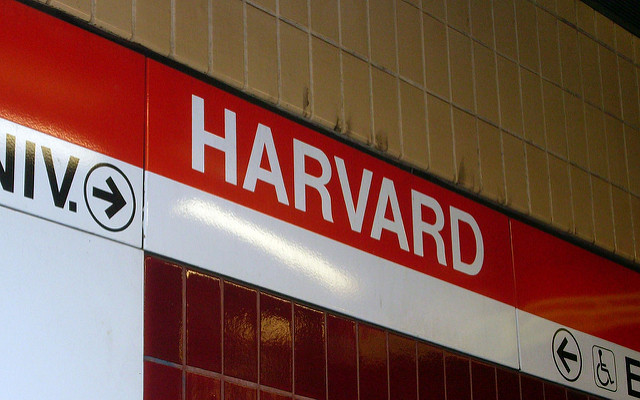Over the last several weeks, I’ve seen a story by FiveThirtyEight, the site started by stats guru Nate Silver, provocatively titled “Shut Up About Harvard” making the higher education social media rounds. I couldn’t agree more with the sentiments in the article. Namely, the article suggests the national media’s focus on elite higher education gives a distorted picture of the way most people experience higher education. In today’s post, I will share the key points from the story that I think those of us in higher education should consider because I do believe it really is time to shut up about Harvard.

The national media is obsessed with elite universities— especially private ones.
Every spring brings stories about how hard it is to get into college.
Every fall brings stories about how the cost of higher education is one millllllion dollars (insert Dr. Evil here).
However, as Ben Casselman’s story correctly notes, most students don’t experience this version of higher education.
For example, most students attend schools that accept more than half of their applicants. They also don’t attend through a residential experience.
FiveThirtyEight makes the case that the journalists at the major media outlets—as well as much of their readership—probably attended elite, selective higher education and thus this informs their worldview.
I suspect this is correct.
Moreover, we have the exact same problems in the higher education research and policy communities.
Although I’ve anecdotally seen some progress in recent years, pick up a higher education journal and you’re still likely to find the majority of research examining highly selective institutions and the students that attend this small sector of higher education.
The same thing is true among think tanks and other policy oriented groups.
Interestingly, the one major higher education constituency that isn’t overwhelmingly dominated by elite (and private) universities?
Nearly one in four state legislators do not hold a bachelor’s degree. By contrast, only 6% of Congress doesn’t have a bachelor’s degree.
The myopic focus causes real problems by misinforming the public and policy debates.
As I have written about before, institutional diversity, or the variety of different types of colleges and universities, is one of the great strengths of American higher education.
Yet, when our discussions of higher education focus on one small type of institutions, we create policies and discourse that do a disservice to the entire higher education system.
As a real example, I have long believed public regional universities and private non-selective institutions are in the most precarious situation of all higher education institutions, but this is rarely discussed.
Instead, the media and policy makers focus on the endowments of elite private higher education or how to make community college free.
These are important discussions for our nation to have, but I would suggest we also need to think about regional public institutions and non-selective privates that form the foundation of baccalaureate education in the United States.
Public flagships and elite private universities are significant to U.S. higher education and warrant attention. However, we have to be careful to not obsess over these institutions and give them appropriate attention.
Which means, it really is time to shut up about Harvard.

